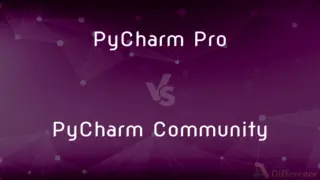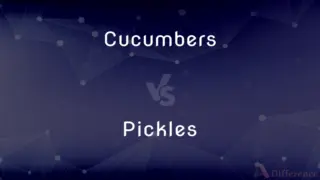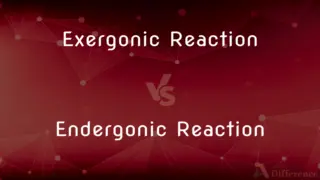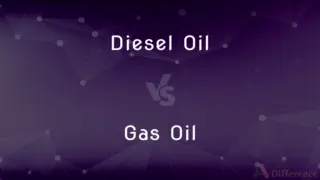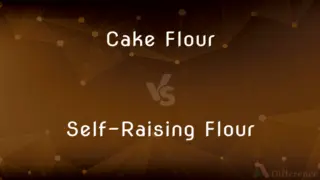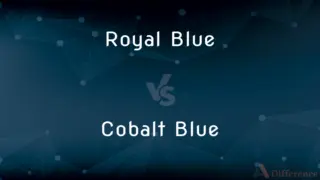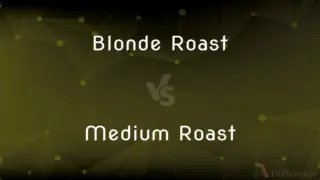Itching vs. Tickle — What's the Difference?
By Tayyaba Rehman & Urooj Arif — Updated on May 4, 2024
Itching is an irritating sensation causing a desire to scratch; tickling is a light sensation that usually causes involuntary laughter.

Difference Between Itching and Tickle
Table of Contents
ADVERTISEMENT
Key Differences
Itching typically results from skin irritation or an allergic reaction, prompting scratching to relieve discomfort. On the other hand, tickling often involves a light, unexpected touch that can provoke laughter or twitching as a reflex action.
Itching can be triggered by factors like insect bites, allergies, or dry skin, often leading to an uncomfortable urge to scratch. Whereas tickling is usually caused by light touch in sensitive areas and is generally associated with playful interactions.
Persistent itching can be symptomatic of underlying health issues such as eczema or psoriasis. In contrast, tickling does not usually signify health problems and is more a social and behavioral response.
The sensation of itching is more continuous and can increase in intensity if the irritated area is scratched. Conversely, the sensation of tickling often diminishes when the stimulus is removed or if one anticipates the touch.
Itching can occur without any external stimulus, driven by internal conditions of the body. However, tickling requires an external trigger, typically another person's fingers or a light object touching the skin.
ADVERTISEMENT
Comparison Chart
Sensation Type
Irritating
Light and playful
Common Causes
Allergies, dry skin, infections
Light touch, usually by another person
Response Desired
Scratching to relieve
Laughter or withdrawal from touch
Relation to Health
Can indicate medical issues
Generally not health-related
Dependency on Stimulus
Internal or external
Exclusively external
Compare with Definitions
Itching
Metaphorically, a persistent desire.
He always had an itching for adventure.
Tickle
A playful action between people.
Their tickle fight ended in giggles and smiles.
Itching
A skin condition marked by this feeling.
Her itching got worse after using a new laundry detergent.
Tickle
To touch someone lightly, causing involuntary laughter.
He would tickle his daughter to hear her joyful laughter.
Itching
As a symptom, indicating something is amiss.
The itching could be a sign of an allergic reaction.
Tickle
A sensation causing laughter or twitching.
The feather used during the game caused a tickle under her arm.
Itching
As an annoyance, often minor but nagging.
The constant itching from his sweater was unbearable.
Tickle
Verbally amusing or causing a light laugh.
His jokes always tickle his audience.
Itching
A sensation on the skin causing a desire to scratch.
After walking through a field, he felt an itching on his ankles.
Tickle
Sensitive to light touches.
Her feet are so tickle that she can't even wear wool socks.
Itching
An irritating skin sensation causing a desire to scratch.
Tickle
To touch (the body) lightly so as to cause laughter or twitching movements.
Itching
Any of various skin disorders, such as scabies, marked by intense irritation and itching.
Tickle
To tease or excite pleasurably; titillate
Suspense that tickles the reader's curiosity.
Itching
A restless desire or craving for something
An itch to travel.
Tickle
To fill with mirth or pleasure; delight.
Itching
To feel, have, or produce an itch.
Tickle
To feel or cause a tingling sensation.
Itching
To have a desire to scratch.
Tickle
The act of tickling.
Itching
To have a persistent, restless craving.
Tickle
A tickling sensation.
Itching
To cause to itch.
Tickle
The act of tickling.
Itching
To scratch (an itch).
Tickle
An itchy feeling resembling the result of tickling.
I have a persistent tickle in my throat.
Itching
Present participle of itch
Tickle
A light tap of the ball.
Itching
A sensation that itches.
Tickle
(Newfoundland) A narrow strait.
Itching
An irritating cutaneous sensation that produces a desire to scratch
Tickle
(transitive) To touch repeatedly or stroke delicately in a manner which causes laughter, pleasure and twitching.
He tickled Nancy's tummy, and she started to giggle.
Tickle
(transitive) To unexpectedly touch or stroke delicately in a manner which causes displeasure or withdrawal.
A stranger tickled Nancy's tummy, causing her to scream in fear.
Tickle
To feel as if the body part in question is being tickled.
My nose tickles, and I'm going to sneeze!
Tickle
(transitive) To appeal to someone's taste, curiosity etc.
Tickle
(transitive) To cause delight or amusement in.
He was tickled to receive such a wonderful gift.
Tickle
(intransitive) To feel titillation.
Tickle
(transitive) To catch fish in the hand (usually in rivers or smaller streams) by manually stimulating the fins.
Tickle
(archaic) To be excited or heartened.
Tickle
(obsolete) Changeable, capricious; insecure.
Tickle
To touch lightly, so as to produce a peculiar thrilling sensation, which commonly causes laughter, and a kind of spasm which become dengerous if too long protracted.
If you tickle us, do we not laugh?
Tickle
To please; to gratify; to make joyous.
Pleased with a rattle, tickled with a straw.
Such a natureTickled with good success, disdains the shadowWhich he treads on at noon.
Tickle
To feel titillation.
He with secret joy thereforeDid tickle inwardly in every vein.
Tickle
To excite the sensation of titillation.
Tickle
Ticklish; easily tickled.
Tickle
Liable to change; uncertain; inconstant.
The world is now full tickle, sikerly.
So tickle is the state of earthy things.
Tickle
Wavering, or liable to waver and fall at the slightest touch; unstable; easily overthrown.
Thy head stands so tickle on thy shoulders, that a milkmaid, if she be in love, may sigh it off.
Tickle
A cutaneous sensation often resulting from light stroking
Tickle
The act of tickling
Tickle
Touch (a body part) lightly so as to excite the surface nerves and cause uneasiness, laughter, or spasmodic movements
Tickle
Feel sudden intense sensation or emotion;
He was thrilled by the speed and the roar of the engine
Tickle
Touch or stroke lightly;
The grass tickled her calves
Common Curiosities
Is itching always relieved by scratching?
Scratching might temporarily relieve itching but can also worsen the irritation.
Is tickling always pleasant?
Tickling can be unpleasant and overwhelming for some people.
What causes itching?
Itching can be caused by dry skin, allergic reactions, or health conditions.
Are itching and tickling sensations related?
While both involve nerve responses, they are triggered by different stimuli and result in different reactions.
What causes tickling?
Tickling is usually caused by light touches in sensitive areas.
Can everyone be tickled?
While most people are ticklish, the sensitivity varies greatly among individuals.
Why do people laugh when tickled?
Laughing from tickling is a reflexive response to an unexpected sensation.
What are the risks of scratching an itch?
Scratching can damage the skin and lead to infections.
How do you stop itching?
Moisturizing, avoiding irritants, and using anti-itch creams can help reduce itching.
Can itching be a sign of disease?
Yes, persistent itching can be a symptom of conditions like eczema or liver disease.
Are there people who do not feel ticklish?
Some individuals do not respond to tickling due to various sensory responses.
Can tickling be used as therapy?
Playful tickling in a comfortable setting can enhance bonding and reduce stress.
Can psychological factors cause itching?
Yes, stress and psychological conditions can sometimes manifest as itching.
Share Your Discovery

Previous Comparison
Fit vs. Meet
Next Comparison
Amable vs. CordialAuthor Spotlight
Written by
Tayyaba RehmanTayyaba Rehman is a distinguished writer, currently serving as a primary contributor to askdifference.com. As a researcher in semantics and etymology, Tayyaba's passion for the complexity of languages and their distinctions has found a perfect home on the platform. Tayyaba delves into the intricacies of language, distinguishing between commonly confused words and phrases, thereby providing clarity for readers worldwide.
Co-written by
Urooj ArifUrooj is a skilled content writer at Ask Difference, known for her exceptional ability to simplify complex topics into engaging and informative content. With a passion for research and a flair for clear, concise writing, she consistently delivers articles that resonate with our diverse audience.




















